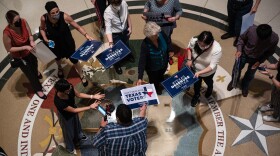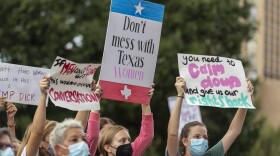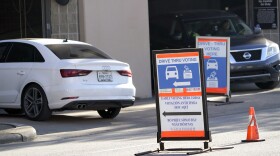Ashley Lopez
Ashley Lopez joined KUT in January 2016. She covers politics and health care, and is part of the NPR-Kaiser Health News reporting collaborative. Previously she worked as a reporter at public radio stations in Louisville, Ky.; Miami and Fort Myers, Fla., where she won a National Edward R. Murrow Award.
Ashley was also part of NPR’s Political Reporting Partnership during the 2016 presidential election. She earned her bachelor’s degree in journalism and political science from the University of North Carolina at Chapel Hill.
-
More than 12% of mail ballots were rejected for the primary. That's a far higher rejection rate than in previous contests.
-
Perhaps most notably, Harris County rejected a whopping 19% percent of the mail ballots it received, or 6,888 ballots in total. Four years ago the county's rejection rate was about 0.3%.
-
In Harris County — home to Houston — election officials so far have sent back to voters nearly 38% of mail-in ballots, citing issues with new state ID requirements.
-
Ahead of the March primary, local elections officials in Texas are starting to deal with the effects of a new GOP-backed voting law.
-
At the same time, in Texas, an increasing number of counties are rethinking who should run elections altogether.
-
The U.S. Department of Justice claims the Texas law contains several provisions that "will disenfranchise eligible Texas citizens who seek to exercise their right to vote."
-
After a lower court temporarily blocked Texas from enforcing what is essentially a ban on abortions six weeks into pregnancy, the 5th U.S. Circuit Court of Appeals has allowed that ban to continue.
-
Texas legislators have begun a special session, where they once again will consider a bill that could change how the state votes.
-
Harris County around Houston used drive-thru voting and extended voting hours to boost turnout in 2020. Republican leaders in Texas say such efforts were an overreach.
-
Texas has lifted its mask mandate and is opening up restaurants and other venues to full capacity. Frontline workers in the state do not have priority access to vaccines and many say they're nervous.









